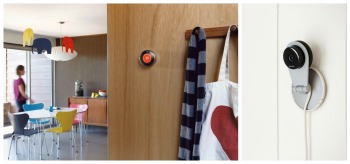
Google (Alphabet) and Nest might not be the happy couple we thought they were
Hearing that there’s some dissension in the Nest ranks after Google kept them off of a smart home project — the very thing Nest would seem perfect for — was pretty surprising, but according to Re/Code, there may have been some bit of justification for that. The outlet reports that Nest has been underperforming since Google acquired them for $3.2 billion a couple of years ago. (For the record, they now exist under Alphabet as an independent arm instead of a division at Google.)
Google apparently set a target figure of $300 million per year in sales, a mark that eluded Nest for two years until Nest ended up buying Dropcam and spinning it into the Nest brand. It was only after that the company was able to hit (and surpass) the mark with $340 million in revenue last year. It’s also suggested that the sales from the Dropcam business declined after it was rebranded to fit with the rest of Nest’s portfolio, something backed up by Dropcam’s ex-CEO who says it was his mistake to sell to Nest during a growth spurt after many advisers and executives suggested otherwise.
$300 million doesn’t sound like too tall of an order for a niche line of smart home products, but Tony Fadell — Nest’s CEO — reportedly asked Google for a lofty annual budget of $500 million as part of their acquisition agreement. In turn, Google presented a clause of their own: Nest executives couldn’t cash out their shares for 3 years.
It would seem to suggest Nest would have had a big exodus problem on their hand otherwise. Many top Dropcam staffers — including the 2 founders — left the company following their acquisition, and while the reasons for those exits weren’t made apparent then (it may have well been a simple change in the wind that inspired them, but their disgruntled Ex-CEO says otherwise) it sounds like no one on Dropcam’s side was particularly excited to be melded into the Nest machine.
If any of this is accurate, it would make total sense why Google doesn’t want to make many more big bets on Nest, and would rather keep their own people on an exciting new smart home project instead of tossing it over to Fadell and Company. If there’s no trust that Nest can generate the type of sales worthy of a $3.2 billion purchase then it makes sense to keep your cards closer to your chest.
So, what’s going to happen in the future? No one’s sure. The aforementioned clauses are supposedly set to run out soon, so time will tell whether Nest suddenly finds themselves short of a couple of executives or an entire fleet of unhappy employees, and we wouldn’t expect Google to put anything big on their shoulders until we know what the potential fallout is going to look like.